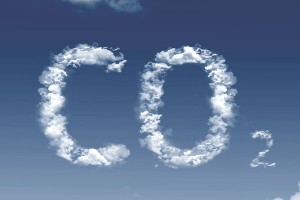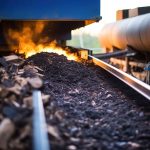Cutting Cost, Consumption, and Carbon
How to reduce emissions and improve your bottom line
There is a widely-held perception in industry that implementing green solutions will incur a cost burden; improving a company’s carbon footprint but not providing any significant financial benefit. We aim to challenge this perception and discuss the opportunities for businesses to make their impact on the global climate change challenge whilst improving their bottom line.
 The release of the IPCC’s Global Warming of 1.5oC report has reignited public concern over climate change and highlighted the significant consequences we’re on track for if our current rate of greenhouse gases emissions persists. It is estimated that to limit Global Warming to 1.5oC above pre-industrial levels; Carbon Dioxide emissions need to decline by about 45% by 2030 (from 2010 levels), reaching net-zero by around 2050. Current national ambitions submitted under the Paris agreement to tackle this issue would fail to meet this limit. To achieve this target, CO2 emissions need to decline well before 2030. Even at an increase of 1.5oC there will still be significant risks for environment and society on national and global scales, increasing further at 2oC and beyond.
The release of the IPCC’s Global Warming of 1.5oC report has reignited public concern over climate change and highlighted the significant consequences we’re on track for if our current rate of greenhouse gases emissions persists. It is estimated that to limit Global Warming to 1.5oC above pre-industrial levels; Carbon Dioxide emissions need to decline by about 45% by 2030 (from 2010 levels), reaching net-zero by around 2050. Current national ambitions submitted under the Paris agreement to tackle this issue would fail to meet this limit. To achieve this target, CO2 emissions need to decline well before 2030. Even at an increase of 1.5oC there will still be significant risks for environment and society on national and global scales, increasing further at 2oC and beyond.
Tackling climate change will be a challenge for all of us, however it also provides us with an opportunity to drive change in how we consume energy to contribute to a more sustainable and profitable future.
Cutting Consumption
The first step in reducing energy consumption is understanding how, where, and when it is being consumed. Contrasting how much energy is being consumed with how much should be, highlights opportunities for improvement in either how much energy we consume, or where we get this energy from. Understanding this consumption in real time can lead to significant reductions. Seeing your consumption in real time can help identify and rectify inefficiencies quickly. Advancements in smart metering technology can help combat climate change and simultaneously drive added value for existing assets.
Extracting energy from waste is another key opportunity to both offset consumption and reduce waste disposal costs. Anaerobic digestion of effluent, co-products, and some industrial waste streams can produce valuable biomethane which can offset existing natural gas consumption from the grid.
Cutting Carbon
It’s hard to imagine that every time you turn on your desk fan (maybe not so applicable in UK this time of year!) that you’re contributing to the emission of greenhouse gases. Every kilowatt-hour of energy, litre of water, and litre of fuel you consume has an associated CO2 equivalent emission. Understanding these emissions is the first step in reducing them.
 Reducing consumption or switching energy supplies to ones with lower emissions leads directly to cuts in carbon. Whether it’s through on-site generation of electricity from solar energy or through agreements to purchase clean energy, the source of energy can make a real impact. The same can be said for heating and cooling. Generating heating and cooling from renewable or waste heat sources such as heat pumps, geothermal, and absorption chillers to supply heat and cooling through renewable or waste. Through the implementation of District Energy Networks, decentralised heat, power, and cooling can be supplied off-grid and can take advantage of low carbon and renewable generation technologies. Alternative transport fuels can also have a big impact; shifting away from conventional combustion engines towards compressed/liquid natural gas, and electric vehicles, both particularly beneficial for large scale haulage.
Reducing consumption or switching energy supplies to ones with lower emissions leads directly to cuts in carbon. Whether it’s through on-site generation of electricity from solar energy or through agreements to purchase clean energy, the source of energy can make a real impact. The same can be said for heating and cooling. Generating heating and cooling from renewable or waste heat sources such as heat pumps, geothermal, and absorption chillers to supply heat and cooling through renewable or waste. Through the implementation of District Energy Networks, decentralised heat, power, and cooling can be supplied off-grid and can take advantage of low carbon and renewable generation technologies. Alternative transport fuels can also have a big impact; shifting away from conventional combustion engines towards compressed/liquid natural gas, and electric vehicles, both particularly beneficial for large scale haulage.
Cutting Cost
Cutting Consumption and Carbon can lead directly to savings by reducing energy charges and carbon taxes, both of which are only set to increase. Cutting Consumption and Carbon however will not only save you money but will allow you to make a significant contribution to the global challenge of reducing emissions and stopping anthropogenic climate change.
How can we help?
At Synergie Environ we have over 50 years combined practical energy auditing experience across a wide variety of sectors, with our team qualified as ISO500001 Lead Auditors and ESOS Lead Assessors. Our team have vast experience in data management and analysis with a proven track records at identifying practical and cost-effective energy efficiency opportunities. We have the knowledge and experience required to help you understand your consumption and emissions and identify improvements.
We have a track record of success in delivering Anaerobic Digestion projects, starting with the development of one of the first AD plants in Scotland over 10 years ago. Our AD development experience continues to be in demand as we are able to get involved at all stages of the development of AD projects from feasibility to procurement, planning and construction. Some of our more recent projects include the food and drink and whisky distilling sectors and most recently the completion of an £11M combined AD and gas upgrade/gas to grid project in the Lake District, England.
Our team are leaders in the field in developing a number of the largest district energy developments in Scotland. With our in-house team of engineers and project developers we have the full range of skill sets to take projects from feasibility through to detailed design and then onto full investment business case. We can manage the project through construction to full commissioning giving our clients the comfort and assurance of continuity of the project team throughout the project duration. Our staff are certified to the latest CIBSE Code of Practice. Our district energy projects provide a bespoke solution to your energy needs and allow you to take advantage of distributing low carbon heat and power generation off-grid – increasing efficiency and de-constraining infrastructure.
If you want to find out how we can help you Cut Costs, Consumption, and Carbon:
Contact Bradley Hannah on 0141 263 0022 or email at bradley.hannah@synergie-environ.co.uk








